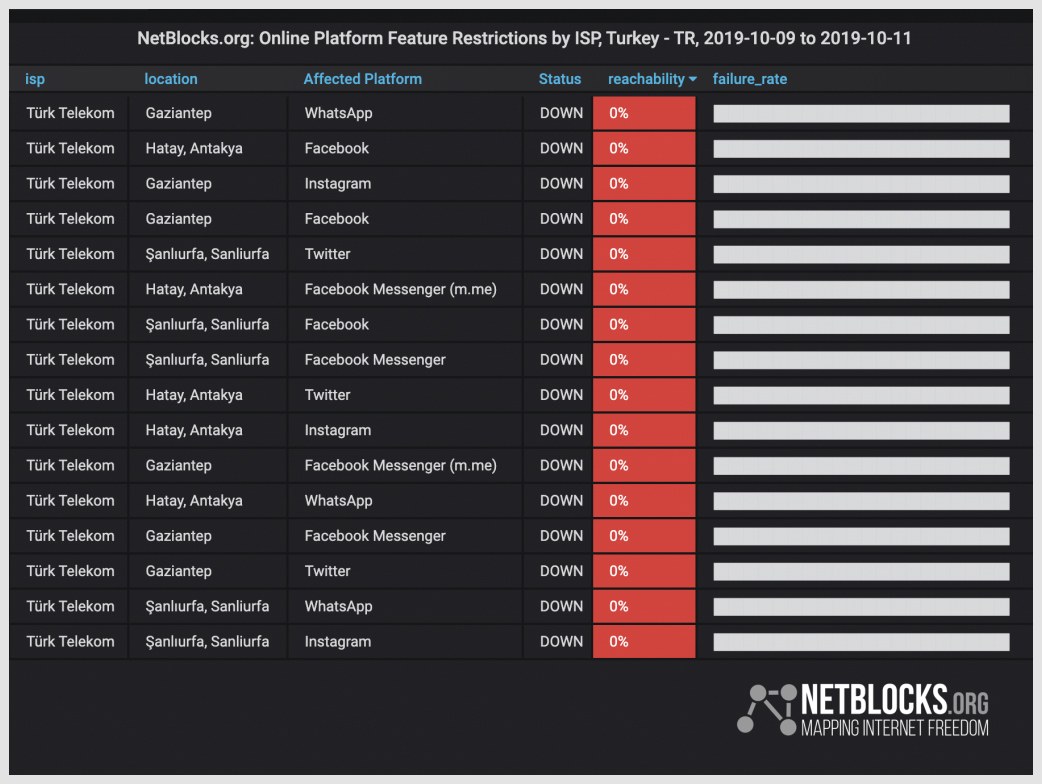Turkey restricted access to Facebook, Instagram, Twitter, and WhatsApp in at least three cities in the southern part of the country for about 48 hours earlier this week as it launched an attack on northern Syria, according to data collected by civil society group NetBlocks and reviewed by WIRED. Turkey moved against Kurdish forces in northern Syria Wednesday, launching an air and ground assault on a militia allied with the US days after President Donald Trump pulled US troops out of the area.
Turks close to the border rely on those social media services to access and share uncensored news.
NetBlocks tests suggest that beginning Wednesday at around 1 am UTC (9 pm Tuesday ET), users in the cities of Gaziantep, Şanlıurfa, and Hatay were blocked from accessing some popular social media platforms and message services while connected to Turkey’s leading internet service provider, Türk Telekom. Access appeared to be restored early Friday morning UTC, the data suggests. Türk Telekom is partially owned by Turkey’s government. Users in other parts of the country could reach the services normally, NetBlocks says.
An image provided by NetBlocks showing the results of tests in southern Turkey.
Courtesy of NetBlocks
NetBlocks director Alp Toker says the length of the restriction is notable. It dwarfs the country’s last major social media blockage, when Facebook, Twitter, YouTube, Vimeo, and Instagram were cut off for seven hours in August 2016, he says.
“It’s not the first time, and it likely won’t be the last,” says Adrian Shahbaz, research director for technology and democracy at civil liberty watchdog Freedom House. Turkish authorities have routinely blocked access to social media in parts of the country in recent years, usually in the wake of terrorist attacks, politically damaging leaks, or citizen protests, Shahbaz says. Turkey also blocks hundreds of thousands of websites outright for reasons ranging from political differences to the presence of explicit content.
The Turkish government’s increasing hostility toward the press has led many journalists in and outside of the country to publish directly to social media in an attempt to evade government censorship, he says. It’s much easier for authorities to restrict access to a particular website or URL than it is to convince foreign social media giants like Facebook or Twitter to take down a specific post or profile.
That’s emboldened many independent journalists to launch their own news outlets on Twitter, YouTube, and other social media platforms, where they’ve been able to reach large audiences, Shahbaz explained.
